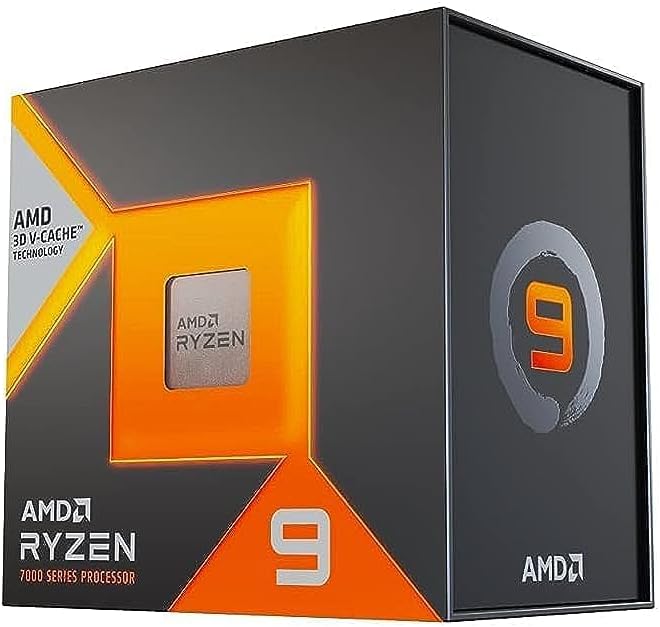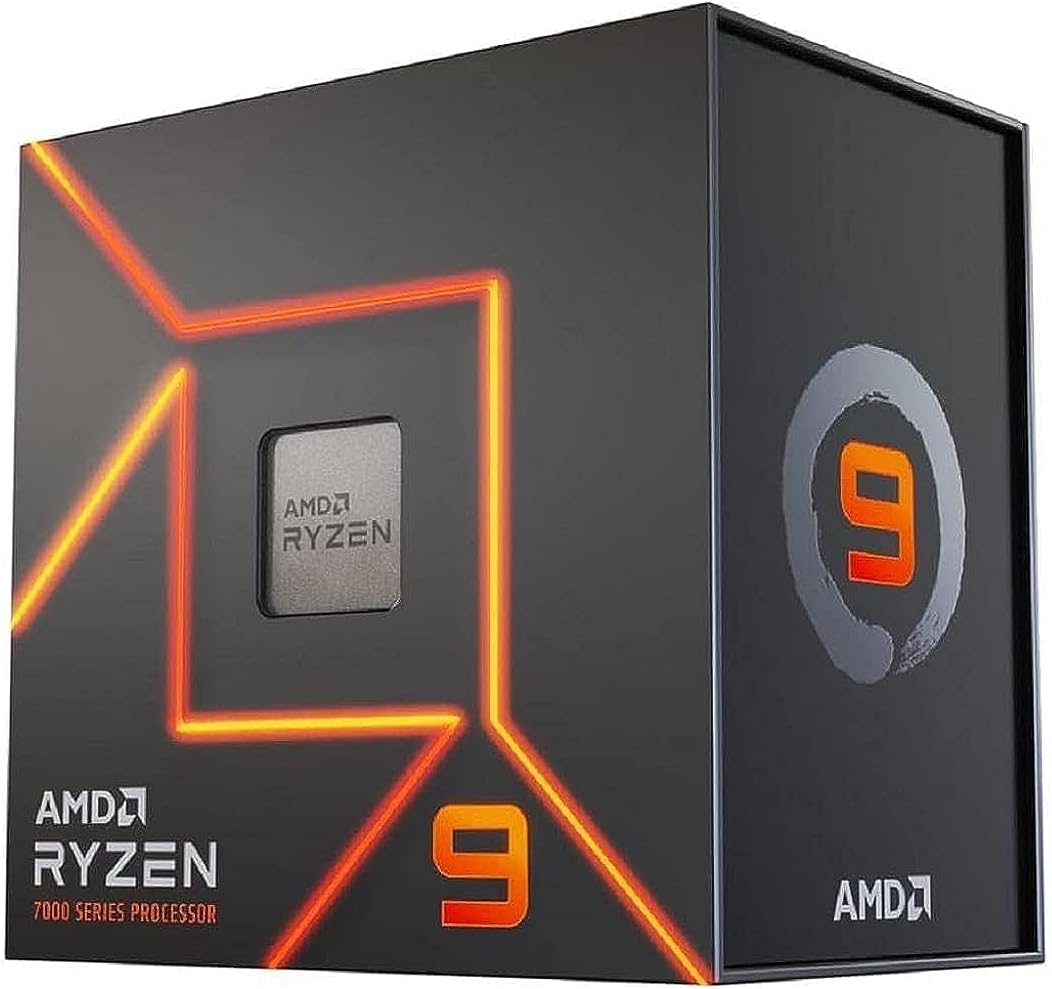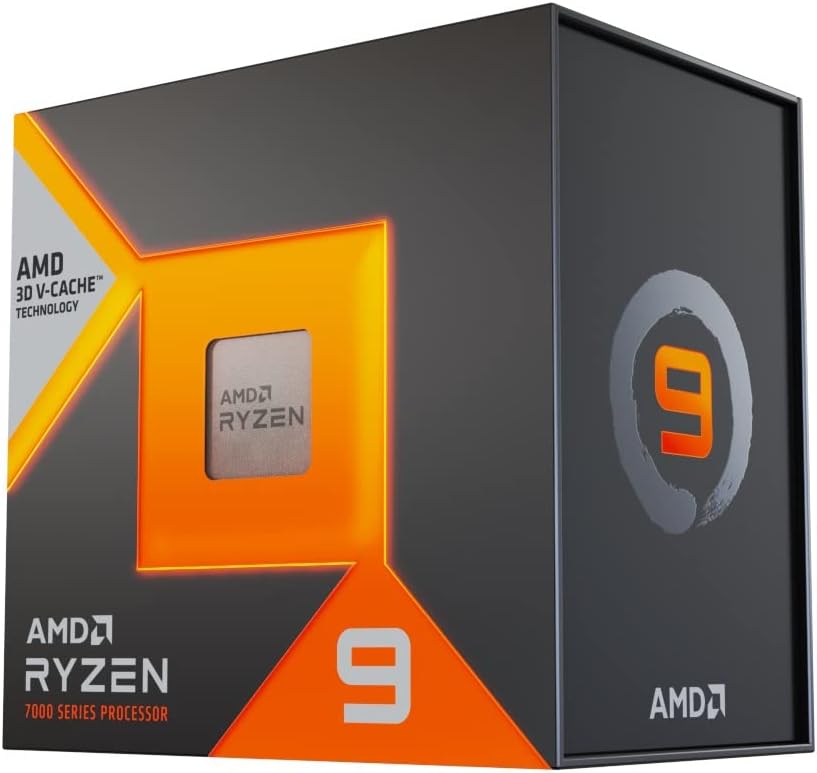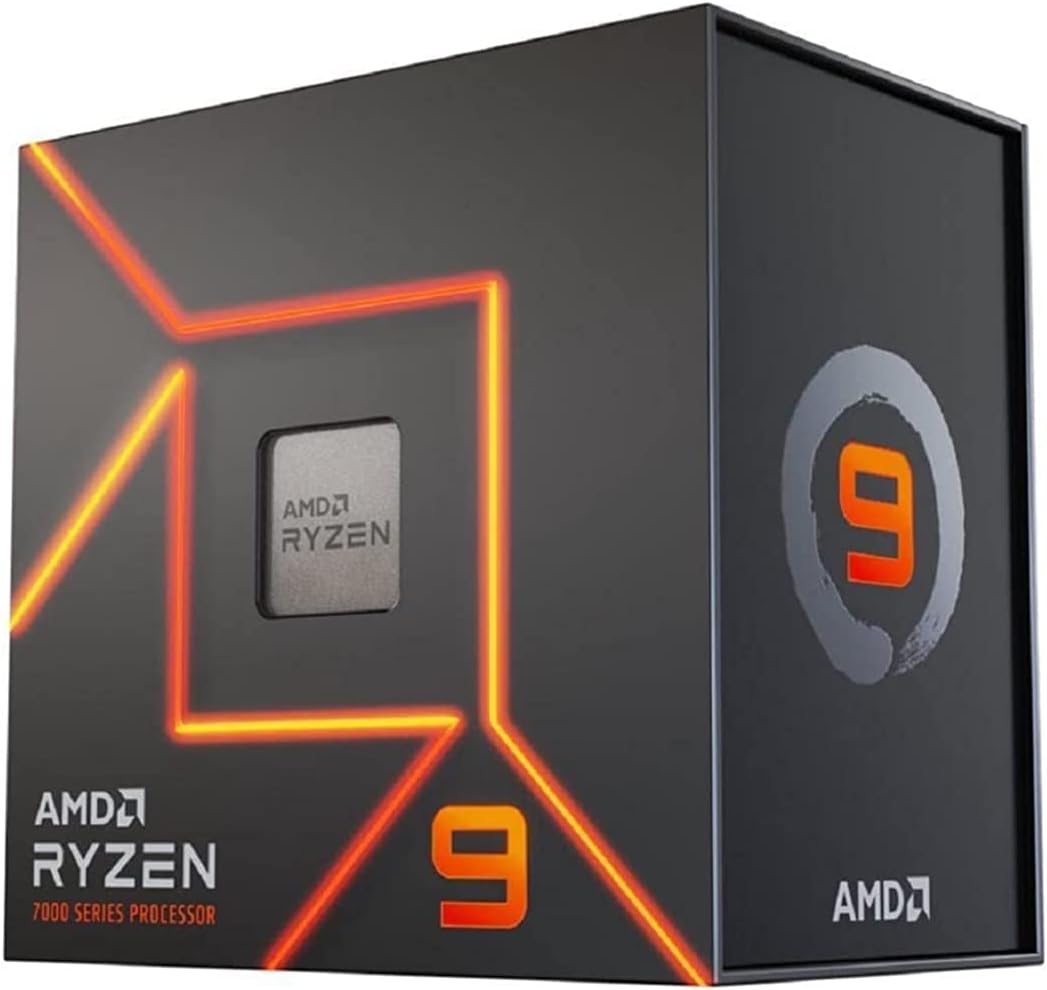|
Higher performance! AMD Ryzen 9 7950X 3D
CPU cores: 16 |
Top sales! AMD Ryzen 9 7950X
CPU cores: 16 |
Good opinions! AMD Ryzen 9 7900X 3D
CPU cores: 12 |
The most economical! AMD Ryzen 9 7900X
CPU cores: 12 |
The processor of a computer is, in colloquial language, its brain. It is the component that coordinates all the actions carried out by the computer, interpreting all the information and translating it into a task. Therefore, it is one of the most important parts of any computer, regardless of the use we make of it. However, it is true that it is especially relevant if we use the computer on a professional basis. Therefore, we are going to show you a comparison between four processors that belong to the AMD Ryzen 9 range, the most advanced of the brand so far.
They are, we could say, AMD’s high-end processors, which is already a brand that inspires great confidence among those most adept at computer technology. Before continuing, let us tell you that sometimes you can also find references to processors as CPU (Central Processing Unit), but it is the same thing.
Returning to AMD Ryzen 9, it should be noted that the company itself defines itself as the creator of processors specially designed for gaming experiences. But do you know exactly why he says this? To evaluate it, you have to look at such important aspects as the number of CPU cores, the architecture, the maximum frequency and speed or the type of memory each one has.
In the case of the four models that we have chosen, we have already told you that most aspects are common, but there are some variations that will make us choose one or the other. The most important changes affect the power, the three caches and the maximum temperature. Do you want to prove it? Let’s go there!
AMD Ryzen 9 (7950X 3D vs 7950X vs 7900X 3D vs 7900X) – Comparison Table
Check, in the following table, all the characteristics of the four processors that make up the AMD Ryzen 9 series, to know which one best suits your needs.
(Swipe the table to see all the content)
AMD Ryzen 9 7950X 3D
|
AMD Ryzen 9 7950X
|
AMD Ryzen 9 7900X 3D
|
AMD Ryzen 9 7900X
|
|
| Medium | Desktop | Desktop | Desktop | Desktop |
| Architecture | It was 4 | It was 4 | It was 4 | It was 4 |
| CPU cores | 16 | 16 | 12 | 12 |
| Threads | 32 | 32 | 24 | 24 |
| Maximum frequency | Up to 5.7 GHz | Up to 5.7 GHz | Up to 5.6 GHz | Up to 5.6 GHz |
| Maximum power | 120 watts (W) | 170 watts (W) | 120 watts (W) | 170 watts (W) |
| Maximum speed | 5200 MHz | 5200 MHz | 5200 MHz | 5200 MHz |
| L1 cache | 1 MB | 1 MB | 768 KB | 768 KB |
| L2 cache | 16 MB | 16 MB | 12 MB | 12 MB |
| L3 cache | 128 MB | 64 MB | 128 MB | 64 MB |
| Memory size | 128 GB | 128 GB | 128 GB | 128 GB |
| Memory type | DDR5 | DDR5 | DDR5 | DDR5 |
| Channels | 2 | 2 | 2 | 2 |
| Maximum temperature | 89º C | 95º C | 89º C | 95º C |
| Supported operating systems | Windows 10 and 11, RHEL x86 and Ubuntu x86 | Windows 10 and 11, RHEL x86 and Ubuntu x86 | Windows 10 and 11, RHEL x86 and Ubuntu x86 | Windows 10 and 11, RHEL x86 and Ubuntu x86 |
| Lithography | 5nm FinFET | 5nm FinFET | 5nm FinFET | 5nm FinFET |
| Plinth | AM5 | AM5 | AM5 | AM5 |
| Integrated graphics | Yes | Yes | Yes | Yes |
Same architecture in the processors
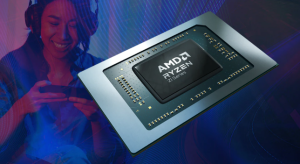
The architecture of a processor can be defined as its internal structure, which determines how all the blocks that make up the processor relate to each other. In this case, all processors in the AMD Ryzen 9 range have the Zen 4 structure, designed and conceived by the brand. Being its own architecture, it is designed to fit perfectly with the new sockets, AM5. And, in this case, there are no differences between the four processors, because AMD has incorporated Zen 4 in all processors since the Ryzen 7 series. Therefore, all of the Ryzen 9 series have this new architecture, which, in reality , is an update of the previous one.
3D technology, only present in two
Looking at the name of each processor, it is easy to identify that there are two different versions, one normal and the other 3D. This is because AMD introduces, in some of them, 3D V-Cache technology, which combines the processors with 144 MB of memory on the chip. The result is more power to enhance the gaming experience, turning these processors into models specially designed for video games.
The number of cores and threads differs
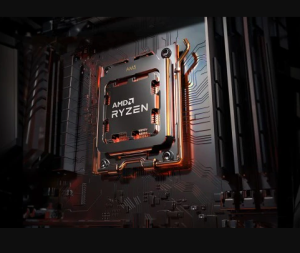
One of the most interesting differences between the four processors in the Ryzen 9 range is the number of CPU cores and threads they have, as it is closely related to its performance. The 7900X models, the standard and the 3D, have 12 CPU cores and 24 threads. In contrast, the 7950X and 3D processors have 16 CPU cores and 32 threads. In general, the more cores a processor has, the more tasks it can perform simultaneously, although this does not always have to be a certainty in all cases.
In the case of subprocesses, also called threads, they are the data control flow in this type of components. Therefore, the number of threads always tends to correspond to the number of CPU cores. Likewise, another difference that exists due to this difference between the 7900 and 7950 models is the maximum frequency, which is slightly higher in those with more CPU cores.
The storage capacity of the caches also varies
We now come to another of the variations that we detected among the AMD Ryzen 9 processors: the maximum storage capacity that each cache has. This type of processors is divided into several levels (L1, L2 and L3). The simplest, L1, usually executes tasks faster, but has less capacity to store data. On the other hand, the L3 cache is the largest, but it takes the longest to execute processes.
In this sense, something curious occurs. While the storage difference between the L1 and L2 caches is between the 7900 and 7950 processors, the L3 cache is different between the standard and 3D versions of each processor. That is, the 7900X and 7900X 3D processors have an L1 and L2 cache of 768 KB and 12 MB, respectively, below the 1 MB and 16 MB that we find in the 7950 series models. However, when it comes to the L3 cache, the 3D models have 64 MB, unlike the 128 MB that the standard models have.
They all have the same type of DDR memory

One feature that all four processors have in common is that they have DDR5 memory, which represents some improvements over DDR4 memory. Among other things, it consumes less energy, and includes an integrated error corrector that increases its reliability. Another improvement has to do with the maximum speed, which rises to 5200 MHz, compared to 4800 MHz for DDR4. Additionally, all of them have 2 memory channels.
Regarding the maximum temperature at which they can work, it differs between the 7900X and 7950X models, whose maximum temperature is 95º C, compared to their 3D versions, which support 89º C.
OS support and graphics integration
Another of the similarities that the four AMD Ryzen 9 processors share is the set of operating systems with which they are compatible, which, in all cases, are Windows 10 and 11, RHEL x86 and Ubuntu x86. Specifically, with 64-bit editions or more. And finally, all of them have integrated graphics with an AMD Radeon model.
AMD Ryzen 9 (7950X 3D vs 7950X vs 7900X 3D vs 7900X): Which processor is more worth it?
As always, it depends on what your most important need is. The AMD Ryzen 9 7950X 3D is the one with the highest price of all, because it is the one that offers the highest performance, especially when playing games. On the other hand, the 7900X model is the cheapest, and can be a good alternative in terms of quality-price if you do not give much importance to video games but you need a good processor to execute tasks in various professional programs.
And, if you are wondering how to choose between the normal and 3D versions, the conclusion is similar to the previous one. That is to say, the 3D versions are better for video games, which is why the price rises a little over the others. Does this mean that AMD Ryzen 9 processors are only suitable for gaming? Far from it, but it is true that it is one of the most appropriate ranges for this type of recreational experiences.
However, if you need a processor with great power, performance and that provides more confidence, any of the four processors in the AMD Ryzen 9 range are a good option.

